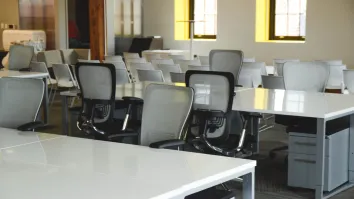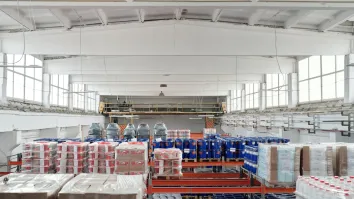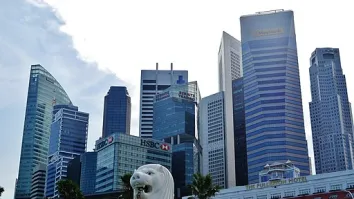
Taiwan commercial property transactions hit 5-year low in Q1
Investments dropped by 57% YoY.
Market confidence weakened after the Taiwan Central Bank announced its seventh wave of selective credit control measures targeting the home mortgage sector in Q3/2024. According to a Savills report, as a result, the total transaction volume for commercial real estate in Q1/2025 dropped by 57% YoY and 36% QoQ to NT$18.2 billion, the lowest Q1 figure recorded over the past five years.
“Despite the subdued investment sentiment, the land market demonstrated surprising resilience. Major developers actively expanded their land reserves, pushing Q1/2025 land transaction volume to NT$50.8 billion, reflecting an 18% YoY and 33% QoQ increase,” the report said.
Here’s more from Savills:
End-users continued to dominate the commercial property market this quarter, accounting for 94% of the total transaction volume. Meanwhile, the share of investment-oriented buyers contracted further to just 6%. The technology sector remained the leading force, with NT$10.3 billion in acquisitions during Q1/2025—representing 57% of the total transaction value. These acquisitions were primarily driven by demand for selfuse factories and industrial office space.
A notable deal this quarter was Micron Memory Taiwan’s acquisition of AUO’s factory in Central Taiwan Science Park for NT$3.05 billion. This followed Micron’s NT$8 billion investments in Taichung and Tainan factories last year, highlighting its continued commitment to expanding its footprint in Taiwan.
The retail sector emerged as the second-largest buyer group, contributing 24% of total transactions. This was largely fueled by Uni-President Group’s NT$4.3 billion acquisition of Building C in the V-PARK industrial office complex located in Neihu Technology Park. Not only was it the largest transaction in Q1/2025, but it also represented a 30% price increase compared to the building’s last recorded transaction in 2012.
By property type, industrial assets, including industrial offices and factories, continued to dominate. Demand for industrial offices was driven by tech-sector expansion and the need for upgraded office environments. The activity was concentrated on newly completed or pre-sale projects in Taipei and New Taipei City’s industrial zones.
Although Taiwan’s housing and pre-sale housing markets have cooled, the land market remained vibrant. Developers were the primary buyers, with NT$44.3 billion in acquisitions, an 82% QoQ increase, and the highest Q1 total in five years. Although a third of the total amount came from a single transaction by Farglory Group for a land site in Kaohsiung’s Art Museum District, the aggressive acquisitions by major developers represented a key indicator of strong confidence in future market prospects.
Looking ahead, uncertainties stemming from potential reciprocal tariff policies under a new Trump administration and TSMC’s expansion in the US may lead local tech firms to take a more cautious approach. With tighter lending conditions limiting investor activity, cash-rich buyers may gain negotiation leverage, particularly for assets in prime locations or with strong rental yields.



















 Advertise
Advertise





